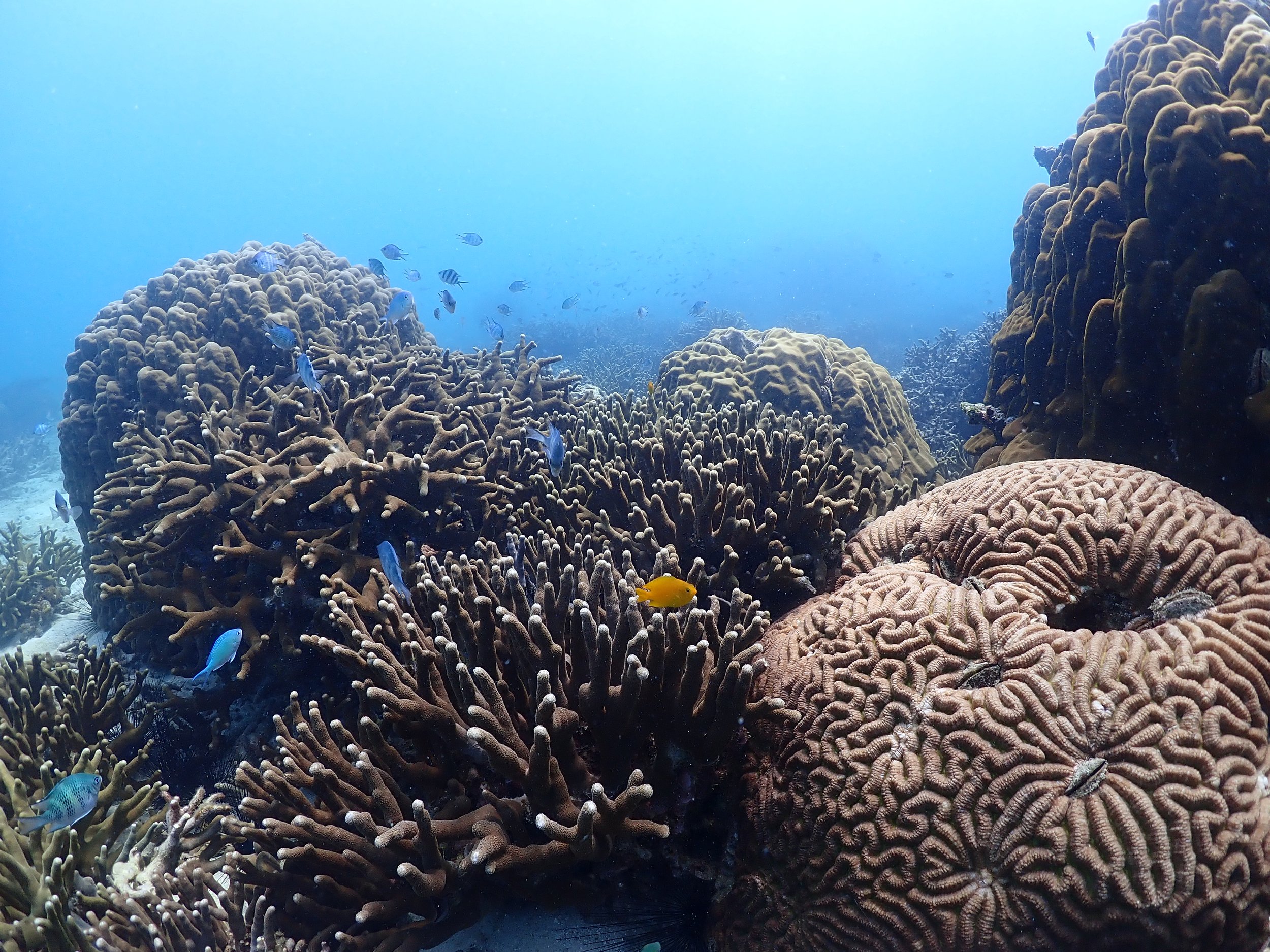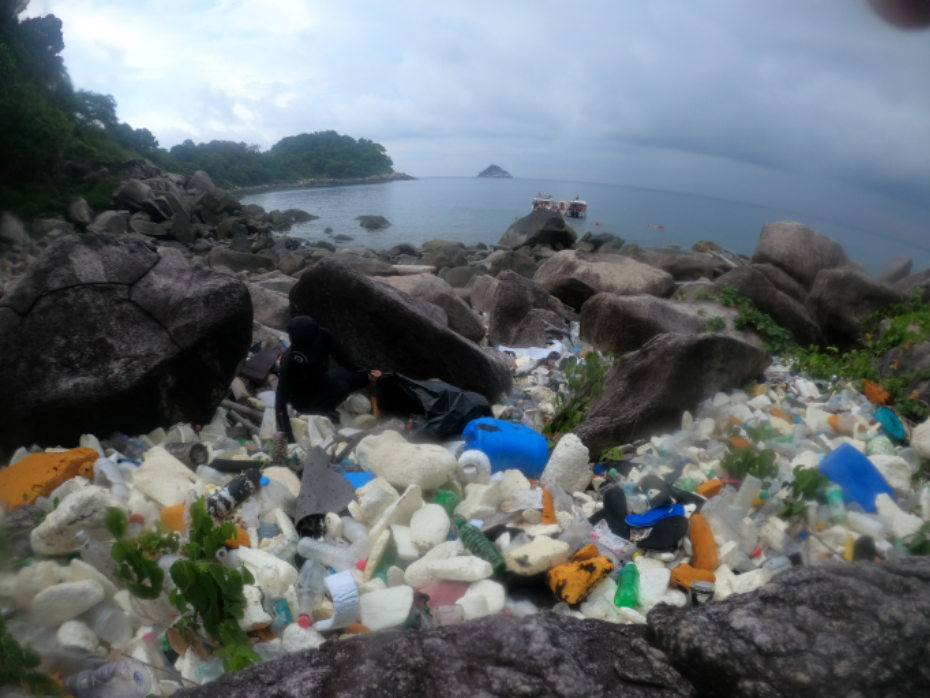I just spent a few days on Tioman island, one of the islands off Malaysia’s East coast (yeah, I know how lucky I am). With me were a couple of old friends who used to dive with me back in the day when I ran a dive centre on the island (yeah, I really do know how lucky I am!!).
It was a bit of a nostalgia trip for all three of us. I’ve been lucky to have been able to visit occasionally, as RCM has a project there. But the other guys haven’t been back for several years, mainly for family reasons. So what did we spend most of our time doing? Reminiscing about the past, of course…and resurrecting a stupid card game called Knickers!
It was 20 years ago that they started visiting regularly, doing weekend dive trips from Singapore, where they were both working at the time. They became regular visitors to the dive centre, coming perhaps six or eight times a year – and both spent long periods on the island during “interruptions” in their careers! One is a PADI instructor, both are tech instructors, and both have logged hundreds of dives – many of them in Tioman.
All of which is to say that they know the island well: they understand its Marine Park status, they know the dive sites, they know what sort of marine life used to be abundant and they know what the water quality used to be like. They were also familiar with the tourism market on the island, relying as it did to a large extent on a mixture of local tourists from Malaysia and Singapore together with some backpackers and a few high-end tourists visiting the small numbers of more exclusive resorts on the island. But overall, medium-high volume tourism, with little emphasis on sustainability or eco-tourism at the time.
As we walked through the island’s main village, Tekek, on our second day both remarked how little it appears to have changed in 20 years. Yes, there is now a bigger school, and yes there are new restaurants – and yes, the road has been improved! But that aside?
Very little physical change – at least in the main village, and no new resorts at all in the last 10 years.
The following day we took a bicycle ride to the neighbouring Air Batang village. ABC, as it is known, remains very much the same as it was 20 years ago – small-scale chalets line the beach along much of its length; only a couple of buildings are more than one storey, and many have been there for years. The following day we took a bike ride the other way, south to Bunut beach, discovering that, apart from the one large resort on the island, little has changed. It looks like Tioman has escaped some of the huge growth in tourism – and resort numbers – that some other islands have seen.
So, what has changed?
Outside the main tourist villages, the story is a little different – but only in some areas. There are new resorts in Juara village, and in Mukut village in the south of the island. There are a couple of new places occupying beaches on the West coast – but nothing large, nothing multi-storey.
Again – the island appears to have escaped over-development. Ok, the water might not be as clear as it used to be – but that could be influenced by sources external to the island – from the mainland, perhaps. And there might not be so many fish. But all in all, the island and its reefs seem to be in fairly good condition.
So how do we maintain that?
And then came the inevitable questions.
What does the future hold for an island like Tioman? What are the development pressures? What happens if the proposed airport development goes ahead, along with talk of quadrupling (yes, increasing by FOUR TIMES) the number of tourists?
What is being done to protect the island?
The best answers I could give to these, and other, questions, were…unsatisfactory.
Despite evidence that sewage contaminates reefs – and is a public health issue – there is still inadequate sewage treatment on the island. Despite evidence that tourism results in physical damage to reefs, there are still no clear guidelines on allowable tourism numbers. Despite evidence that fish populations should recover in a marine protected area…the opposite seems to be happening.
In my opinion, Tioman is a jewel among Malaysia’s islands. Home to intact rainforest, numerous endemic species, and some of the best coral reefs on Malaysia’s East coast - it is a gem worth protecting. And my friends agree.
So how, in the face of slow reef decline, creeping tourism growth, lack of a clear sustainable tourism strategy, and proposals for mega-infrastructure development, how do we go about conserving the island, specifically its marine resources?
My friends expressed two concerns: lack of visible management of the island and no obvious vision for the future. Here’s how we can address those concerns.
First, get the local islanders more involved in protecting the island’s reefs through participatory management and conservation programmes. We are already doing that with the Tioman Marine Conservation Group and the Department of Fisheries’ Reef Care project. Tick that box.
But more than that, we need to look at how we can protect and enhance the resilience of the island’s ecosystems. Resilience is a concept that describes the natural ability of an ecosystem to recover from a disturbance – bleaching, pollution, etc.
There are three key parts to maintaining resilience: good water quality (so let’s improve the sewage treatment), no physical impacts (so let’s look at managing tourists better) and lots of fish to eat the algae (seaweed) that, if not controlled, can smother corals (so let’s improve compliance with fishing regulations).
Not beyond the bounds of possibility.
And finally, let’s develop a long-term vision for the island, one that values its ecosystems in a way that is inclusive, and benefits the islanders, not just a small handful of developers who will make money from building resorts and infrastructure…but who won’t suffer the loss of ecosystem services that are likely to follow.
There are plenty of examples of islands that got over-developed. Let’s not let that happen to Tioman.
Check out our work on Tioman Island at Cintai Tioman.

























